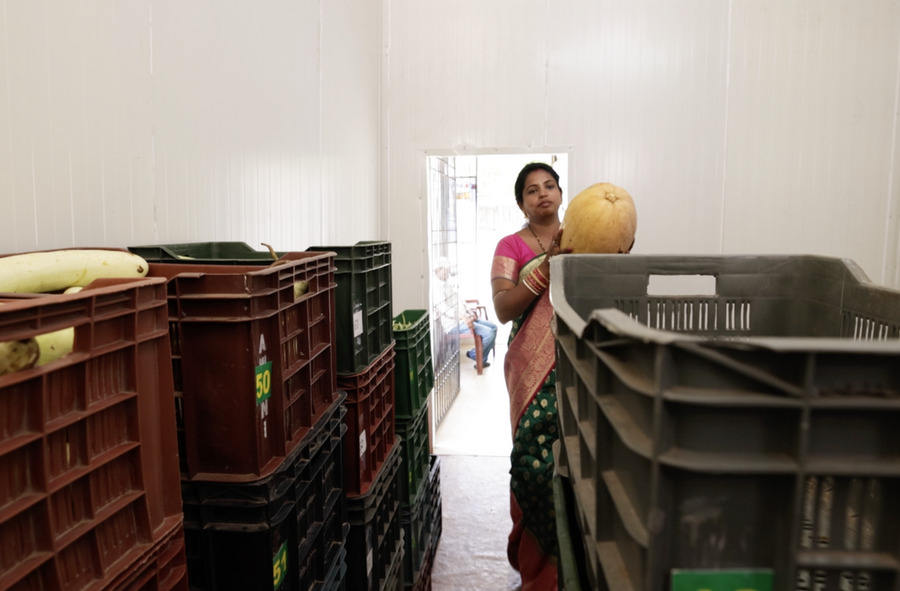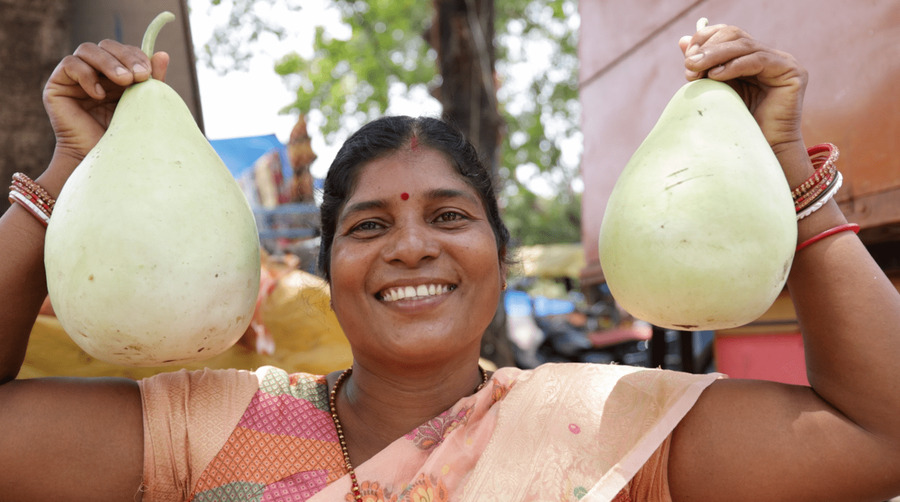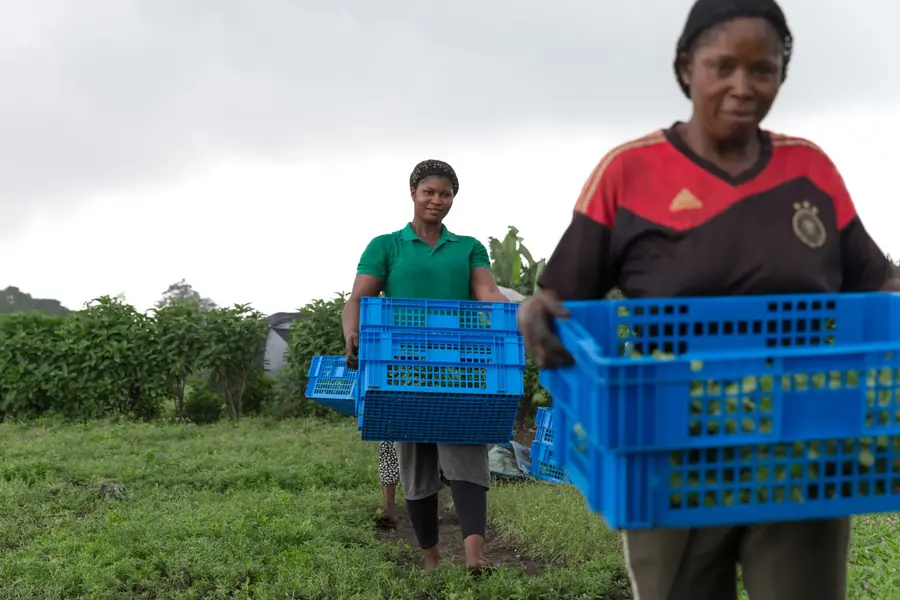Koel Fresh is setting up solar-powered cold stores at farm gates and markets run by local women’s federations in and around Rourkela. The project is leveraging the Your Virtual Cold-Chain Assistant (Your VCCA) solution comprising the Coldtivate mobile application to facilitate inventory management, post-harvest and market intelligence, and a Cooling-as-a-Service business model.
Tackling post-harvest food loss in Eastern India with solar-powered cooling
Crop loss and wastage poses a significant challenge for India, which is one of the largest food producers globally. The country faces this issue on a massive scale due to inadequate availability of refrigeration and accessibility to markets. It is estimated that around 35% or 40 million tons of fresh produce in India is wasted annually, which amounts to a staggering $13 billion per annum. But as-a-service solar-powered cooling can change this.
Koel Fresh, after conducting an initial survey on post-harvest refrigeration in the Sundargarh district of Odisha state, identified multiple issues, including limited decentralized storage options, insufficient grid power access, high investment requirements and operating costs, lack of information on appropriate cold storage locations, and a lack of sustainable operating models, which leads to stranded assets. This absence of post-harvest refrigeration has substantial consequences.
Farmers, small vendors, and street hawkers often resort to “distress selling” their goods at reduced prices before they spoil, which results in lower incomes. In Rourkela, 30% to 40% of vendors are deemed vulnerable, with elderly or scheduled tribe women experiencing this issue more frequently. Furthermore, Koel Fresh identified that there are limited sustainable business opportunities for local women’s federations in Rourkela due to a lack of technology, training, market access, and business acumen.

How servitisation and digitalisation are improving food security
The proposed solution to address the crop loss and wastage issue in Rourkela is the establishment of digitized cluster-based solar-powered cold rooms at selected farm gates or market yards. The goal is to aid farmers, small vendors, and street hawkers in storing their fruits and vegetables. A cluster-based approach, which involves placing smaller-sized cold rooms (5-30MT) at strategic locations, rather than constructing one large common storage (e.g., 5000MT), was developed to provide cooling across several farm gates and market yards spread across major areas in Rourkela.
The operators of these cold rooms are recruited from the local communities, facilitating the transfer of skills and creating alternative income streams beyond agriculture. The cold rooms can be accessed by the local communities through a pay-per-use approach, making cooling technology accessible and affordable while eliminating the need for a significant upfront investment.

Members of the Maa Tarini Self-Help Group, a progressive women federation that operates and manages the cold room are trained in using the Coldtivate mobile app
“Climate change solutions, women empowerment, social inclusion have been the core themes of this project and are the driving forces toward strengthening the local economy during COVID and the post-COVID scenario.
We are very hopeful that our solution will be scaled up in various parts of India and that Rourkela city will act as a role model for many other cities.”
– Dibyajyoti Parida, IAS. Hon. Commissioner, Municipal Corporation and CEO Rourkela Smart City
The Koel Fresh solution uses the Coldtivate mobile app, developed by BASE and Empa through the Your VCCA program. The app has been designed to ease operations and management of the cold room and contains various features to enhance the benefits of using the cold rooms, such as a digital inventory of the crops stored, physics-based models to predict the remaining storage life of the product in storage based on real-time temperature sensor data, and a module that forecasts the market prices of the crops across Indian markets, which can be shared with farmers, small vendors and street hawkers.
In addition, the servitisation business model allows local farmers to pay only for the amount of storage service they use, while the ownership of the cold rooms is retained by the provider, incentivising them to maintain the equipment’s performance in the long run. This model applied to cooling, Cooling-as-a-Service, enables much cheaper access to cold storage, while the Coldtivate app also enhances the transparency of the processes and builds trust in the solution.
To read more details on the model, the benefits and the project plan for the future, you can consult the full case study ⏬




